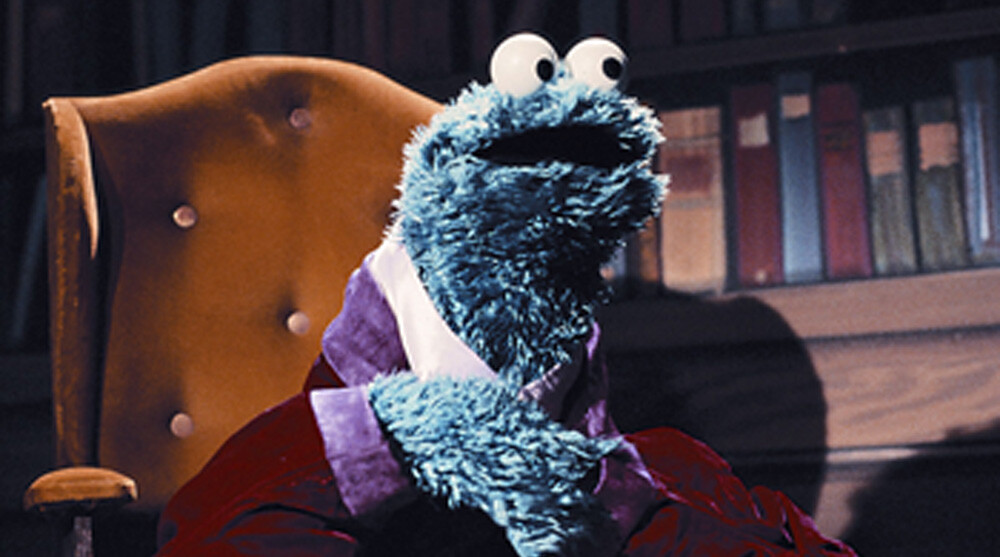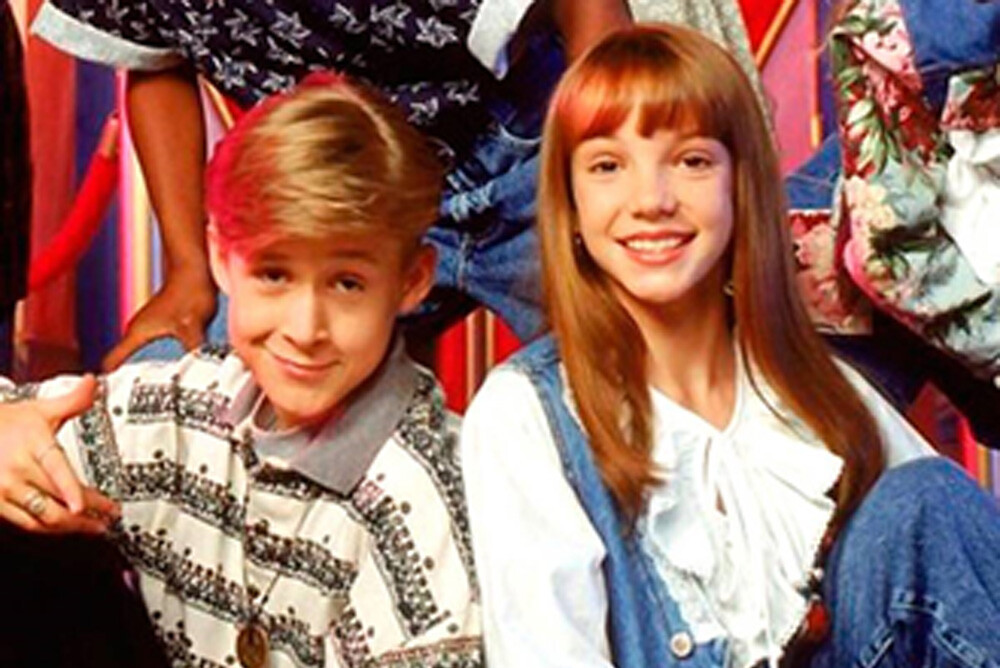5 Kids' TV Shows That Launched The Careers Of Multiple Stars

If you need some perspective, just remember that every single person you admire -- and everyone you hate, for that matter -- started out as a perpetually confused kid. And if you want even more perspective, this also means that some of our most accomplished performers started out on children's TV, catering to a large yet tiny, quasi-aware audience. We're talking about folks like …
Morgan Freeman On The Electric Company
The Electric Company was a show from the ‘70s that was meant to be the next step up for kids who were too old for Sesame Street. The show didn't last long, especially since Sesame Street is still socially acceptable to talk about as an adult, so kids never felt like they were getting too old for shapes and colors.

Sesame Workshop
Since it was written for a more discerning, snobby audience of dumb eight-year olds, the show got a lot of serious creative talent: Chuck Jones animated special Road Runner cartoons where Wile E. Coyote read road signs, and legendary songwriter Tom Lehrer switched from writing about BDSM and animal cruelty to suffixes. Even Spider-Man showed up, in weird half-cartoon half-real form:
By the way, does something sound kind of familiar about that narrator? That's because it's one of our greatest narrators -- Electric Company was Morgan Freeman's first credited role. Decades before he was the voice of dignified wisdom in too many movies to count, he was just a young actor looking for work with a pretty good voice.
The Mark 1 Morgan Freeman voice didn't have quite the same effect, but he made the most of it by playing whatever silly word-related characters the writers could think up. Over the years, he played everything from a DJ spinning phonics-themed tracks to a silhouette carefully teaching pronunciation, to this vampire taking a bath:
The show started a year before before Blacula, meaning he's a trailblazer for black vampires everywhere.
Lin-Manuel Miranda And Chidi On The Electric Company (Again)
Fast forward three decades later, when PBS had the bright idea to bring The Electric Company back and reimagine it for the 21st century. Since the usual update strategy of "dress everyone in black and give them trauma" doesn't help eight-year olds learn how to read, they just hired a bunch of young actors.

Sesame Workshop
The new show had an actual storyline, where "the Electric Company" is the central team, who use their grammar-based superpowers against a corresponding evil team called "the Pranksters". You'd think the enemies of the Electric Company would have a name like "The Antitrust Regulations" or "The Sustainables" or something, but no, they were the Pranksters. One of them was William Jackson Harper, who played a neurotic and sad villain before playing a neurotic and sad hero in Midsommar and The Good Place:
As you can see, the new show had songs just like the original. They couldn't attract the original show's level of talent, though, so they had to settle for having songs from some young composer nobody had ever heard of, named Lin-Something Something.
They managed to double up by having him sing his own songs, a move he was already using in this little project he was working on called In the Heights:
Miranda was writing these songs a while before Hamilton got off the ground, and for all we know the idea of a hip-hop musical about the boring topics that get taught in school might have started here. Speaking of teaching, for a show that tries to teach kids how to read, it can come up with some situations that are pretty impossible to describe in writing, like "Chidi versus Lin-Manuel anthropomorphic food Old West high noon gunfight adjective thesaurus rap battle":
Leo DiCaprio And Ellie From The Last Of Us On Growing Pains
In the days before streaming, TV shows didn't need anything so sophisticated as "a central premise" -- you could just make a show about a functioning, loving family without any major external or internal problems. As long as you had some corny jokes and at least one cute kid, you could make it five or six seasons without breaking a sweat before people started to wonder why they were watching.
Growing Pains, an ‘80s sitcom that made it into the ‘90s, is a perfect example. It's right there in the name: Maybe the sixteenth or seventeenth-worst thing about puberty and adolescence, in TV show form. The show followed the Seaver family through their incredibly minor struggles, and kept following them for so long that eventually, the family didn't have any cute kids anymore.
Like we've established, that's an unthinkable calamity for a show like Growing Pains, and they took action. They aged up the baby girl of the family into a precious but precocious five-year-old, and just to cover their bases, they had the family adopt a foster kid in his early teens. It was a tough job trying to find someone who could be cute enough for adult viewers and cool enough for kids. Let's see how they did:

ABC
Yeah, hard to argue with that choice. The young DiCaprio was such a find that he outgrew Growing Pains pretty much immediately, and left the show before he finished his first season in the main cast. The show ended pretty soon after, since after Leo left there was only the little girl to support the cute kid quotient. What ended up happening to her, the last of them?

Naughty Dog
Ashley Johnson had to wait a lot longer than Leo make a name for herself, but between The Last of Us, Infinity Train and Critical Role, she's definitely found success playing characters who actually have interesting lives.
Laurence Fishburne (And More) On Pee-Wee's Playhouse
For a show from the ‘80s, Pee-Wee's Playhouse was working with advanced levels of irony. Pee-Wee Herman began life as one of Paul Rubens' stand-up characters, a demented parody of a kids TV show host, and somehow he wound up as an actual beloved kids TV show host. It's an impressive pivot from doing something ironically to doing it seriously, right up there with the Dumb and Dumber guy winning the Oscar for Best Picture.
But if you go back and watch Pee-Wee's Playhouse today, part of what makes it unsettling is how often you can see famous actors joining Pee-Wee in his imaginary antics. It makes it weirdly dreamlike, the way you might see a famous actor in a dream who's also your dad -- or in this case, seeing Laurence Fishburne but he's also a tender, bashful cowboy:
This was one of Fishburne's first roles, before anyone realized he was a machine that generates gravitas. He wasn't playing against type, because his type didn't exist yet. He was still a hardworking actor who gave every single role his all, even if that role was Cowboy Curtis. He wasn't the only committed, serious actor to take a tour of duty in the Playhouse: S. Epatha Merkerson had a regular role as Reba the Mail Lady years before she arrested half the people in New York City on Law & Order, and Natasha Lyonne's very first on-camera role was a member of the "Playhouse Gang":

Shout! Factory
The Playhouse Gang was Pee-Wee's version of the half-audience, half-host group of children that a lot of old TV shows had. That whole concept was left behind as child labor laws became more serious, but one of those groups was practically a nebula, considering how many stars began there ...
Too Many Mouseketeers To Count
In some ways, the Walt Disney company as a whole deserves the number one spot on this list. The global conglomerate that's done better at world domination than most supervillains started out with nothing but a cute cartoon mouse -- of course, a mouse that Walt Disney doesn't deserve much of the credit for.
But Disney has always been carefully calculating about how to weaponize children's feelings for maximum profit. That's why one of their most popular shows was The Mickey Mouse Club, a variety show with a bunch of child performers who were called “the Mouseketeers” -- as in "Musketeers", not a cutesy mispronunciation of "mosquitoes". But the Mouseketeers were feeding off fresh blood -- the concept behind casting such talented artists was that any kid watching could feel like they could be a star, if they agreed to use their beautiful voices to sing Mickey's praises.

Disney
The Club started all the way back in the ‘50s, though it had to dissolve and reform a few times, never lasting longer than a few years. Generally speaking, once the members of the Club got too old, they stopped being quite so relatable, and bringing in replacements didn't help ... hmm, where have we heard this before?
But somehow or other, it all clicked together after a few tries. The version of the show in the ‘90s ended up being the goose that laid the golden egg—or in this case, the Gosling:

Disney
Ryan Gosling wasn't the only ‘90s Mouseketeer who went on to bigger things. Britney Spears, Christina Aguilera, Justin Timberlake and Keri Russell were all on the show at various points, though they were never all together at once, probably because that level of star power was too big for the fledgling Disney Channel, even retroactively. Still, we have smaller finds, like the clip Gosling and Timberlake playing fanboys for a forgotten ‘90s R&B group:
"Ladies, you settle this argument: Which of us is more blonde?"